 ( afoto de Charlemagne, jefe de "bandidos" o de "irreductibles galos", hoy quizás de "terroristas",
( afoto de Charlemagne, jefe de "bandidos" o de "irreductibles galos", hoy quizás de "terroristas",asesinado de un tiro en el corazón y expuesto crucificado por los marines en la puerta de una iglesia de la republica de ahití )
A Ahití, las armas de la Francia Napoleonica (imperial y republicana a la vez)
le impusieron el pago de una indemnización en compensación por la perdida de la propiedad de los esclavos liberalizados.
La cantidad era imposible de pagar, con intereses crecientes, como luego fué el modelo de "las deudas externas" que asolaron las neo-colonias en el S.XX.,
así que se estuvo pagando durante más de 100 años, hasta 1938, cuando
ya se había traspasado el negocio a la Banca de los Estadosunidos.
Copio de clioperu.blogspot.com/2010/03/la-historia-invisible-de-haiti :
"En 1915, los marines desembarcaron en Haití.
Se quedaron diecinueve años.
Lo primero que hicieron fue ocupar la aduana y la oficina de recaudación de impuestos.
El ejército de ocupación retuvo el salario del presidente haitiano hasta que se resignó a firmar
la liquidación del Banco de la Nación,
que se convirtió en sucursal del Citibank de Nueva York.
El presidente y todos los demás negros tenían la entrada prohibida en los hoteles, restoranes y clubes exclusivos del poder extranjero.
Los ocupantes no se atrevieron a restablecer la esclavitud, pero
impusieron el trabajo forzado para las obras públicas.
Y mataron mucho."
Como sucede frecuentemente en estos casos, hubo sagradas Resistencias.
Un bonito documento llamando a la Guerra Santa y Justa, cojido de http://historymatters.gmu.edu/d/4946/:
Haïtiens!
Un jour semblable au 1er janvier 1804, se lévera bentôt.
Depuis quatre ans, l’ Occupation nous insulte à tout instant.
Chaque matin nous apporte une nouvelle offense.
Le peuple est pauvre et l’Occupation le pressure sous les taxes.
Elle répand les incendies et elle empêche aux gens de reconstruire leurs maisons en bois, sous prétexte d’embellissement de la cité.Haïtiens, restons fermes.
Suivons l’exemple de la Belgique!
Qu’importe si nos villes sont brûlées!
Ce n’est pas une vaine pensée que celle écrite sur la tombe du grand Dessalines:
“Au premier coup de canon d’alarme, les villes disparaissent et la nation est debout.”La sainte cause qui s'étend dans le nord, a pour chefs des citoyens de valeur.
Le Sud attend seulement un homme pour suivre cet exemple sublime.
Pas de danger, nous avons des armes.
Chassons ces hommes sauvages, dont la sauvagerie est patente en la personne de leur président Wilson, traître, brigand, fauter de troubles, voleur.Mourez pour votre pays
Vive l’Indépendance! Vive l’Union! Vive la guerre juste! A bas les Américains!
Charlemagne Masséna Péralte
Este comunicado es obra del tipo de la foto, Charlemagne Péralte, militar que
en 1915 se negó a rendir la plaza y se retiró a sus labores, pero,
2 años despues, tras liarla con un americano y ser condenado por ello a la esclavitud de los trabajos forzados,
se escaqueó y se hizo capo de la guerrilla, los "Cacos" ( qué nombre más interesante, hay que ver si tiene relación con "caco=ladrón" ).
Dos años de guerrilla se consumaron con la traición de uno de sus oficiales;
fué emboscado y muerto de un tiro en el corazón ( que bonita imagen, como el Monseñor ).
La ocurrencia de colgar el cadaver en la puerta de una iglesia, como escarmiento,
dejó esa Foto.
Con 33 años; no se podía hacer mejor para convertirlo en legendario.

"...The photograph was immortalized in 1948 by Philome Obin in his painting,
"Crucifixion de Charlemagne Péralte pour la Liberté."
( http://www.backspace.com/notes/2004/03/ )
Y un episodio que explica que tiene que ver la Guerra de los Cacos con la de Madián.
Sobre una mujer a la que un oficial de las fuerzas de ocupación le incauta su mula.
La mujer necesita su mula; va a buscarla y es represialiada con
su marido colgado y quemado vivo,
su casa quemada
y su hermano pequeño convertido en esclavo temporal.
Despues de lo cual, puede recuperar su mula, comprandosela al oficial.
La historia está relatada en la comisión de investigación del Senado de los u.s.a :
"Inquiry into Occupation and Administration of Haiti and Santo Domingo by the United States Senate Select Committee on Haiti and Santo Domingo"
(Washington, D.C.: Government Printing Office, 1922),
y recolectada de :“The People Were Very Peaceable”: The U.S. Senate Investigates the Haitian Occupation
Onexile: The first atrocity was a mule that I had tied up in my garden. I went to take this mule. I did not find him. When I did not find him I came in and made a report to the magistrat communal that I did not find the mule in the yard.
Chairman: Then, what happened?
O: I took the stamp of this mule from the magistrat and went to Tamoceque or anywhere that I could find him. I found the mules in the hands of Capt. Kelly, who was then at Cercle La Source. When I presented my certificate for the mule the mule was not there, he had sent it to Carquiat to carry food, for the gendarmes. When the mule returned Captain refused to turn the mule over to me and demanded 130 gourds for it. I came back to Hinche to get the 130 gourds. Capt. Kelly then locked me up in the prison of Cercle La Source and two days later Capt. Kelly went out to replace—
C: How long did you stay in prison?
O: I entered the prison Saturday and they turned me loose Sunday at 3 o’clock in the afternoon, and then he did whatever he wished with the mule.
...C: After putting you in prison did he keep the mule?
O: I came back here on a Wednesday.
Angell: Came back here to Hinche?
O: Yes; to Hinche. Then, when I went away I stayed at home with my infant and I took sick and could not come back here.
C: Wait a minute. You had come back here?
O: I had come back and returned.
C: You had come back here to stay with the children?
O: And went back with my children.
C: Where were your children?
O: At my habitation. When I came back to my habitation, Capt. Kelly came out in charge of a patrol. He took my husband and hung him to the rafters. He took our little bag of money and set fire to the house. Hung him to the rafters, and then set fire to the house. A little brother of mine was there at the time, and they brought the little boy, my brother, to the prison and made him work.
A: When was it? How long ago that your husband was hung in this manner?
O: It will be two years and ten months on the 6th of January.
C: Do I understand that he kept him hanging when the house was burning? Was he in the house when it burned down?
O: Yes; he was hanging in the house.
Jones: Was he burned?
O: Yes. I saw that.
Interpreter: A minute ago she said she thanked the good Lord that she was not there or he would have done that to her.
Angell: Where were you when you saw your husband hung up before the house was burned?
O: I was in Rampique, when this was done. It was my little brother who saw it. I went to see my mother who was sick.
Senator [Atlee] Pomerene: So you did not see it yourself?
O: It was not I who saw it. It was my brother.
...Pomerene: Do I understand that the husband was burned to death?
O: Yes; my husband.
...A: Did you see the house after it was burned?
O: Certainly, I saw the ashes.
A: Have you ever seen your husband since then?
O: How was I going to see him?
...Chairman: For the record, the Chair notes that the burning took place in March, 1919, and the complaint to Lieut. Wood at Bajon, in November, 1920.
A: Did you make any complaint to the Haitian authorities before you complained to Lieut. Wood?
O: There were no Haitian authorities at that time.
...
P: What did Capt. Kelly put you in jail for?O: For a mule. On account of a mule.
P: At that time were there Cacos here in Hinche?
O: There were no Cacos at the time.
P: Did your husband belong to the Cacos?
O: Never.
...J: Where was your husband when the mule was stolen?
O: At his house.
J: At his house?
O: Yes.
...J: Why didn’t he go after the mule?
O: He was suffering with rheumatism.
J: What was it that caused you to think that you would find the mule with Capt. Kelly?
O: I complained, of course, a great deal when the mule was lost, and some one told me he had seen the mule at Cercle La Source.
J: And Capt. Kelly wanted you to pay 135 gourds for the mule?
O: Yes.
J: And you came back home to get the money, did you?
O: I returned to get the money and returned with 135 gourds.
J: Why were you willing to pay 135 gourds for a mule which belonged to you?
O: I knew the mule was mine. Capt. Kelly asked me for the money. I claimed the mule, and when I claimed the mule, Capt. Delly said I must pay 135 gourds for it. I wanted the mule real bad and I went to get the 135 gourds and he refused to give it to me.
J: Was it a native mule?
O: Yes, sir.
..."
Medal of Honor
for Extraordinary Heroism
& Conspicuous Gallantry & Intrepidity
por sus actos de 1919,
the death of
Charlemagne Peralte,
the supreme bandit chief
in the Republic of Haiti,
& the killing, capture & dispersal of about
1,200 of his outlaw followers."
sale en findagrave.com, una pagina dedicada a la localización de tumbas.
que tiene un sistema para dejar notas y flores virtuales a los muertos.
estoy intentando dejarle un escupitajo y/o mierda virtual. )


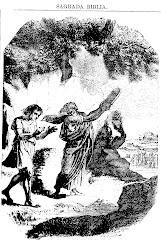



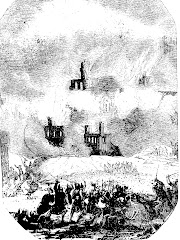
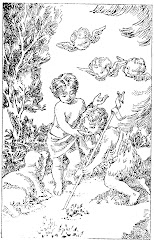

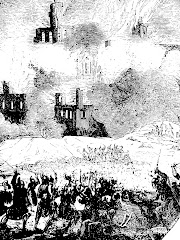




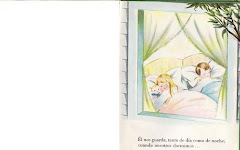
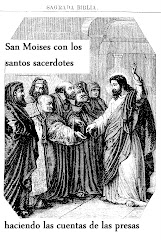
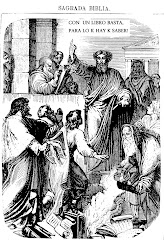





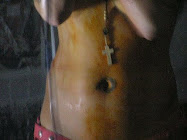

No hay comentarios:
Publicar un comentario